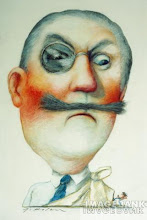I read a book recently, and learn a great deal about the impact of truth in an organization. The book title, “If Aristotle ran General Motor”.
In the book, the author mentions that the Inner foundation of excellence in every human plays important role, he found out that human being tends to have the tendencies to blame their failure on external circumstance. Though, it might be their mistake! They intend to run away from the truth, to avoid punishment.
Philosopher, Plutarch who served as a priest at the temple of Apollo at Delphi before he become famous in the Roman empire, once said, to make no mistakes is not in the power of man; but from their errors and mistakes the wise and good learn wisdom for the future. Mistake should not stop us from telling the truth, likewise, we should learn from our mistake. Truth is important for an organization to survive; we can only drive our direction if truth is spilled out clearly.
Don Peterson, past president of Ford Motor Company, tells an interesting story. Once when he was visiting a stamping plant in buffalo, New York, a huge bear of man came up to him and said, “You know, I want to tell you one thing. I used to hate coming to work here. But lately I have been asked what I think, and that makes me feel like I am somebody. I never thought the company saw me as human being, now I like coming to work.”
It is important to allow other to tell you what they think is true because it can help in motivation. “Truth is one of the dimensions in work”, said Tom Morris, Chairman for Morris Institute for Human values in Wilmington, North Carolina. We need truth to steer safely through difficulties in future, and we are unlikely to get it unless others are open to sharing it with us. “Too many frontline workers and managers are reluctant to pass on a hard truth to the person they report to, because they are working in a corporate culture where it is not clear what the value of truth is!” he added.
Jack Welch (General Electric), Mike Walsh (Union Pacific Railroad) and Percy Barnevik (Asea Brown Boveri), pointed out to eleven traits that seem responsible for their success, and one of these eleven qualities, they says, is that these individuals appear to have a “visceral affinity for truth”.
Thus, if we do not create an environment where truth is respected, we do not have a working environment in which people are being respected. Any organization that has forgone truth will find it difficult to make a good steering.
In the book, the author mentions that the Inner foundation of excellence in every human plays important role, he found out that human being tends to have the tendencies to blame their failure on external circumstance. Though, it might be their mistake! They intend to run away from the truth, to avoid punishment.
Philosopher, Plutarch who served as a priest at the temple of Apollo at Delphi before he become famous in the Roman empire, once said, to make no mistakes is not in the power of man; but from their errors and mistakes the wise and good learn wisdom for the future. Mistake should not stop us from telling the truth, likewise, we should learn from our mistake. Truth is important for an organization to survive; we can only drive our direction if truth is spilled out clearly.
Don Peterson, past president of Ford Motor Company, tells an interesting story. Once when he was visiting a stamping plant in buffalo, New York, a huge bear of man came up to him and said, “You know, I want to tell you one thing. I used to hate coming to work here. But lately I have been asked what I think, and that makes me feel like I am somebody. I never thought the company saw me as human being, now I like coming to work.”
It is important to allow other to tell you what they think is true because it can help in motivation. “Truth is one of the dimensions in work”, said Tom Morris, Chairman for Morris Institute for Human values in Wilmington, North Carolina. We need truth to steer safely through difficulties in future, and we are unlikely to get it unless others are open to sharing it with us. “Too many frontline workers and managers are reluctant to pass on a hard truth to the person they report to, because they are working in a corporate culture where it is not clear what the value of truth is!” he added.
Jack Welch (General Electric), Mike Walsh (Union Pacific Railroad) and Percy Barnevik (Asea Brown Boveri), pointed out to eleven traits that seem responsible for their success, and one of these eleven qualities, they says, is that these individuals appear to have a “visceral affinity for truth”.
Thus, if we do not create an environment where truth is respected, we do not have a working environment in which people are being respected. Any organization that has forgone truth will find it difficult to make a good steering.





No comments:
Post a Comment